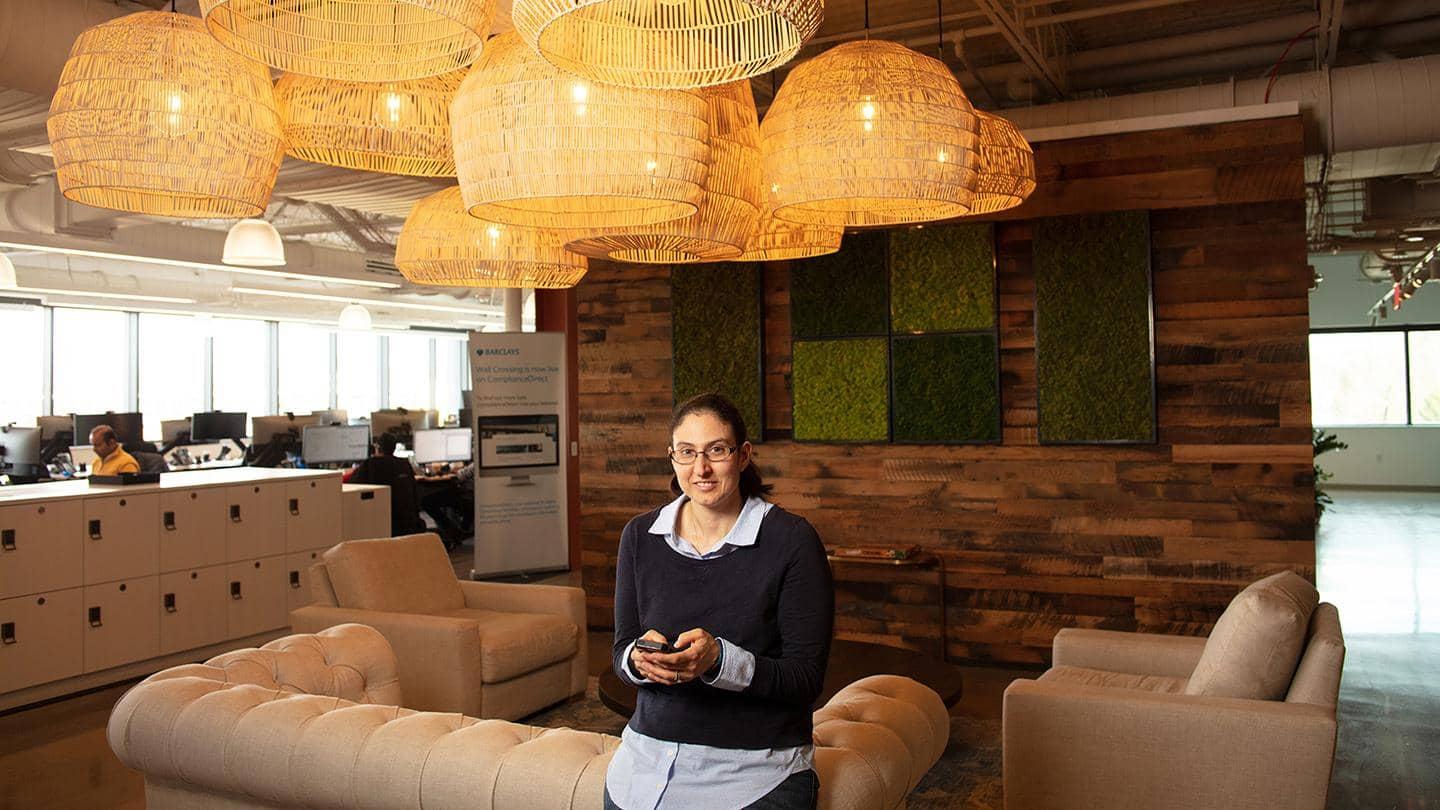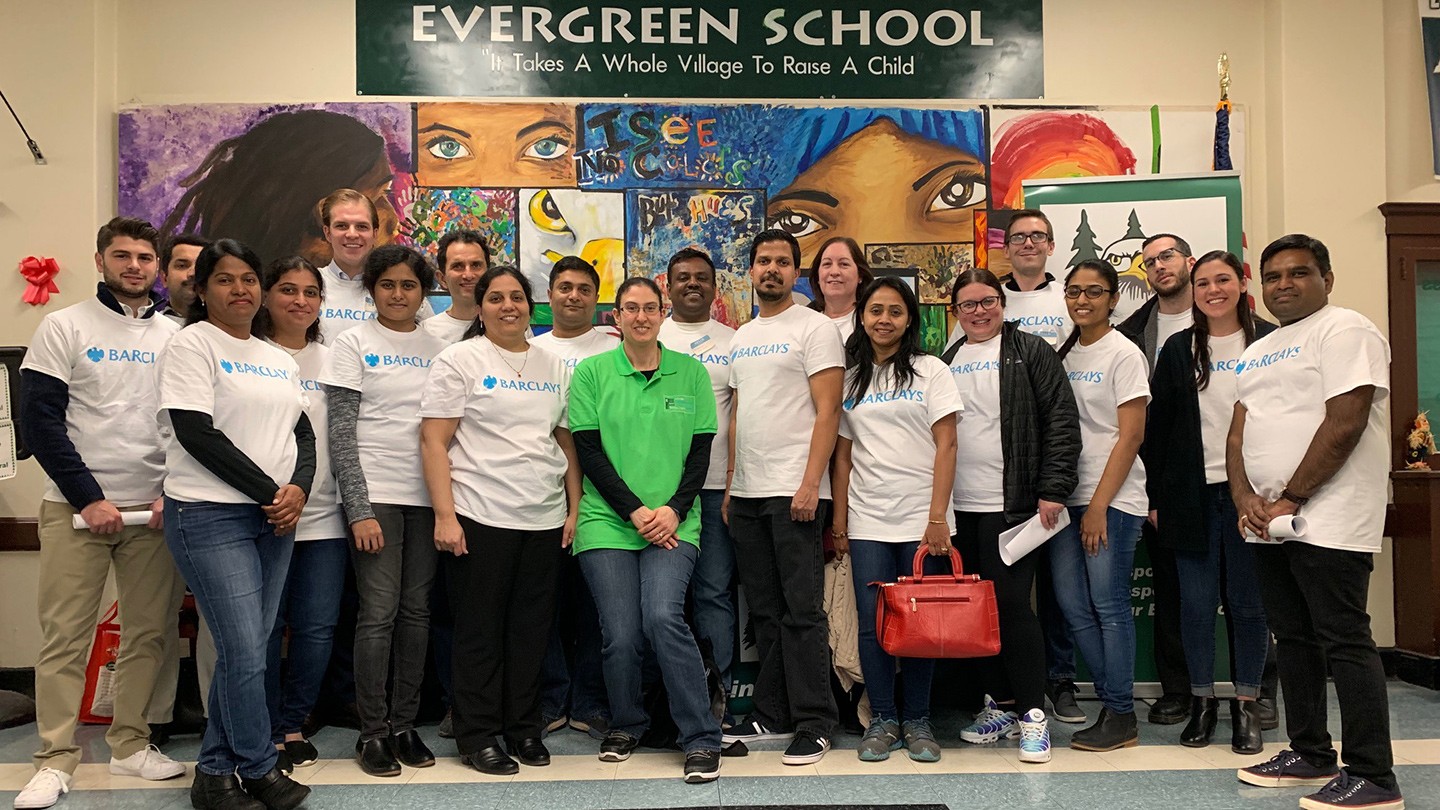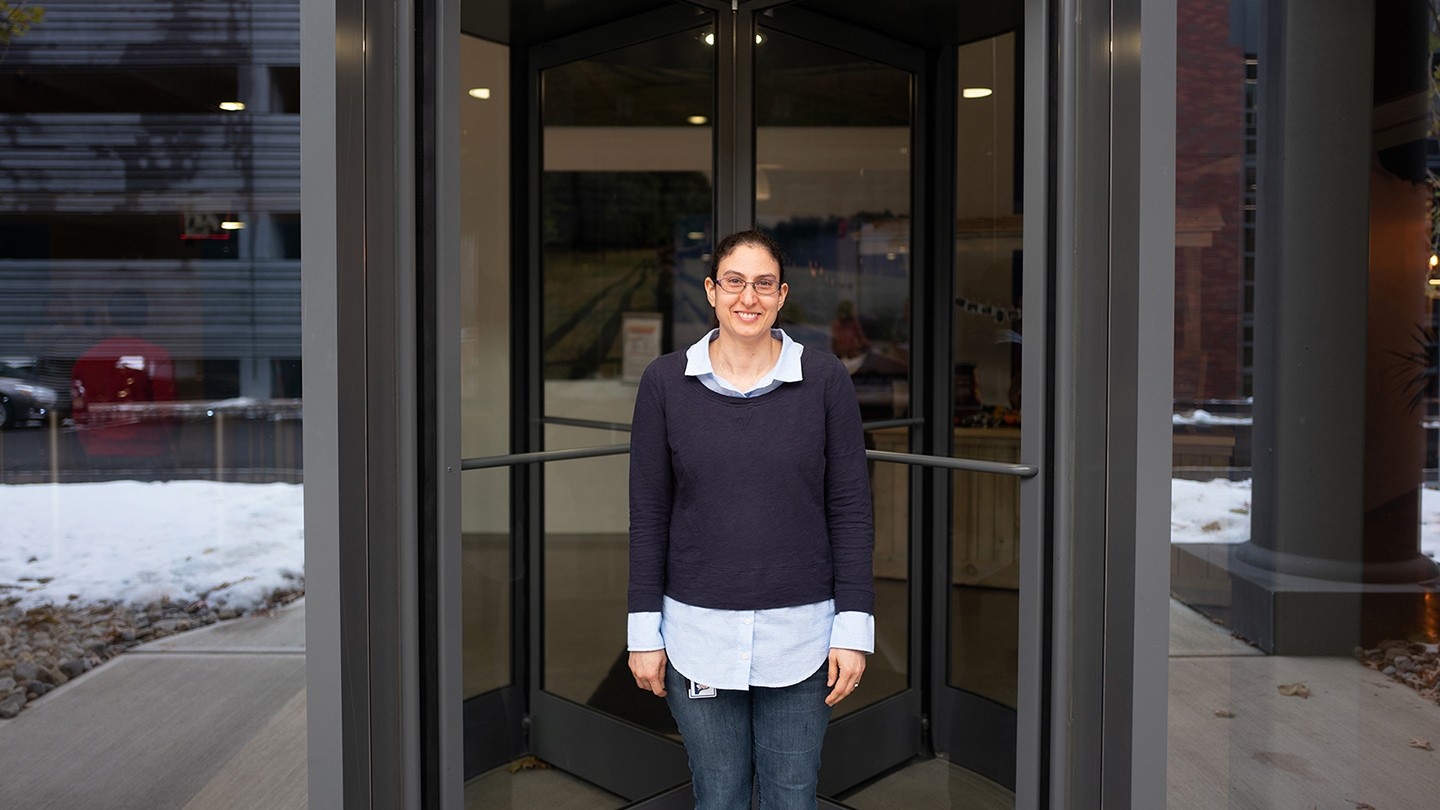
Community
In The World: instilling a “passion for programming” in children
Marci Needle works for Barclays in Whippany, New Jersey and volunteers with Digital Eagles US, a Barclays-sponsored initiative that has so far taught more than 1,500 kids to code. Marci tells us how the initiative gives back to the community – and why it’s an “amazing feeling” to spark kids’ interest in technology.
We usually work with kids aged between eight and 11, which is an age where they’re open to learning so many new things. In our monthly sessions in New York City and New Jersey, we teach them how to code video games step-by-step using Scratch, which is a free online programming language created by the MIT Media Lab. It’s a chance to target the next generation and instil a passion for technology and programming.
One of the reasons we selected this particular age group is that they are still very open to new ideas and possibilities. We want them to understand that anyone can become a technologist, especially young girls. For them to see me as a female leading the session with other women volunteers is hopefully an inspiration to them.
We let the kids play around for 15 minutes once they finish coding the game and it’s amazing what they come up with. At the end of the event I ask, “how many of you are going to code at home?” and all of their hands shoot up.

I’ve been with Barclays for 17years and now work in Prime Finance IT in Whippany, New Jersey. I’ve been volunteering with Digital Eagles US for two and a half years. It takes time organising these events outside of my day job. I have to get all the materials together, create certificates, recruit volunteers and liaise with school principals. It’s all voluntary, with no budget available, and I love going out there and teaching these kids about technology because technology is all around them. Seeing a kid finally understand they can build technology and not just use it; seeing that light bulb turn on – that’s an amazing feeling.. I think that’s why so many volunteers come back time and time again – because it’s so joyful to see the excitement in these kids.
We founded Digital Eagles US in 2016, after members of the Digital Eagles UK came and trained us on how to run a code playground for a ‘take your child to work day’ event. From there, we decided to branch out into the community and teach the same code playground programme at local elementary schools – we’ve now taught over 1,500 kids.
Each event has an average of 20 to 25 volunteers and I’m always looking for new volunteers. I’ve recruited a lot of people in my team at Barclays and they’re always discussing how we can develop the programme curriculum. It brews excitement at work. We’re trying to train more people to become instructors and encourage people to find schools to take part. As long as I can get more people to volunteer, I plan to keep growing Digital Eagles US for as long as I can.
The main challenge has been finding schools to take part in the programme, because a lot of people think the initiative is too good to be true. Once we get into a school, the principal usually reaches out to other principals and then it becomes word of mouth. Being nominated as a global finalist for the 2018 Barclays Citizenship Awards has also given our work exposure and helped get more people involved which is great. Now, we’re in high demand and a lot of schools ask us to come back.

As we’ve become so popular, we’ve naturally split into two locations. I run all the New Jersey events and Alyssa Nieves – a Barclays Executive Assistant who helped launch Digital Eagles US – runs the New York City events.
Barclays’ support for initiatives like Digital Eagles US is incredibly important in giving back to the community. It’s unbelievable what these kids can do and exposing them to programming and technology sparks an interest that benefits everyone.
The kids love taking part in Digital Eagles US’ Code Playground events– and who knows, some of them may work for Barclays one day. We’ve met a few children who probably already could.